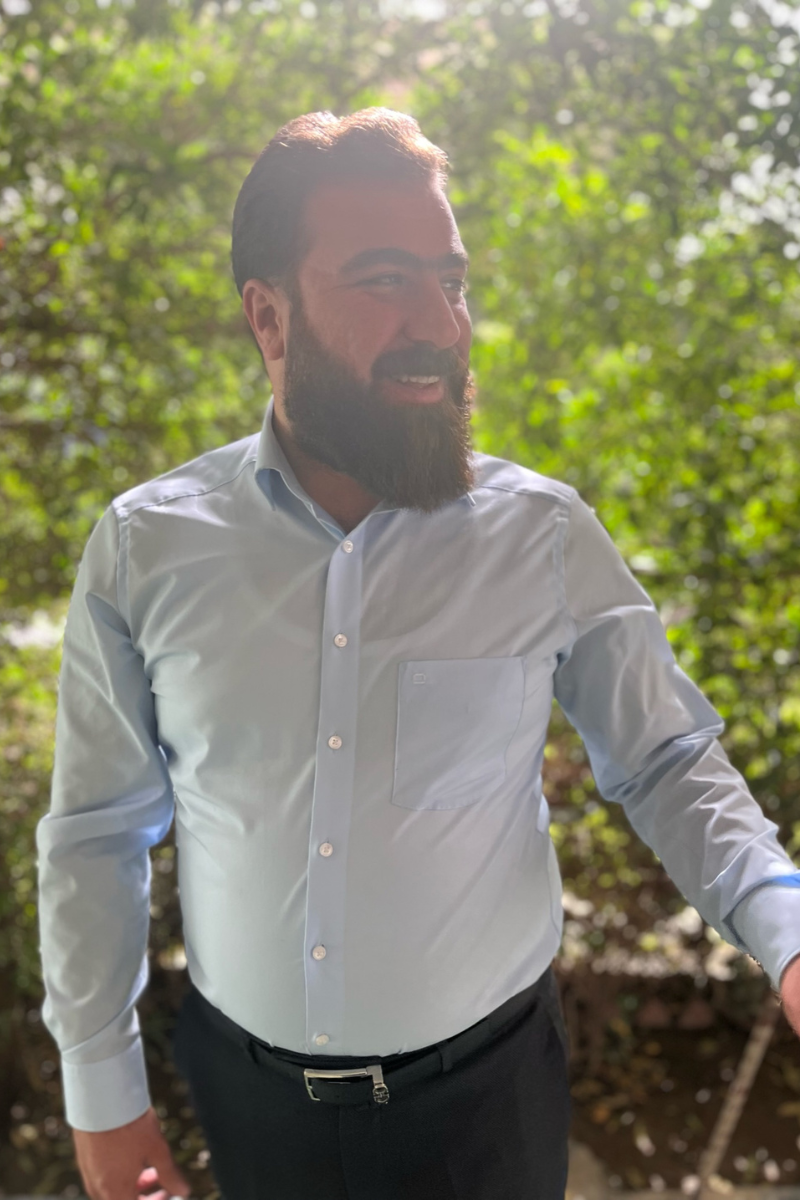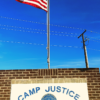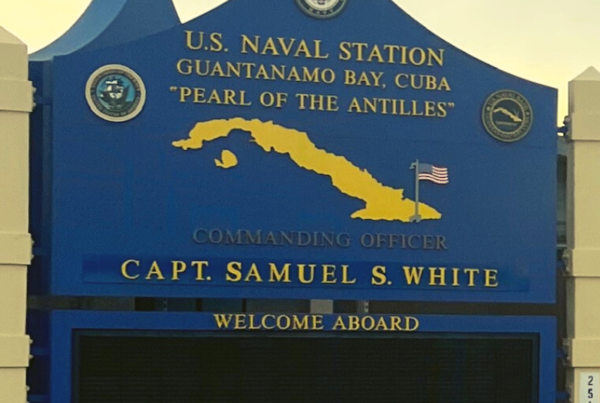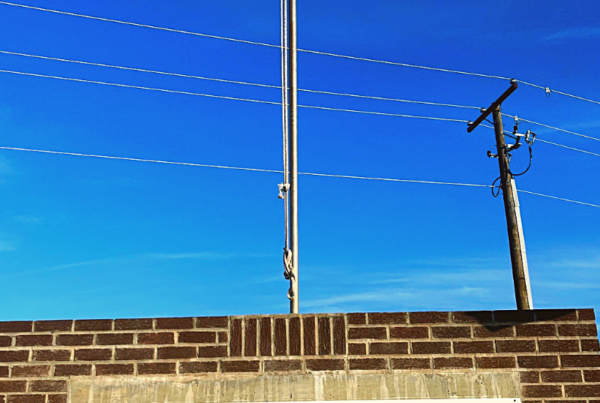BAGHDAD, Iraq – Less than three years after the United States withdrew all its troops following eight tumultuous years, yet another rendition of a terrorist group named ISIS swept through large swaths of Iraq in the scorching early summer of 2014.
The footage was chilling for many Americans, particularly those who served: thousands killed in cold blood, tens of thousands of anguished faces fleeing from their homes, including the already dwindling and intensely persecuted Christian community.
Over decades, numbers belonging to the Christian minority have painfully dwindled, slowly becoming extinct from their ancestral lands, from the Cradle of Civilization where life began. Observers worried that the ISIS onslaught would be the final straw.
But five years after the extremist outfit was declared territorially defeated in Iraq, where does the plight of Christianity stand?
An embattled, persistently bickering cast of Iraqi parliamentarians, unable to form a government eight months after elections, ceaselessly squabble over outside influences, squandered funds, and tenuous sectarianism. As a result, many Christians believe that all hopes and dreams of a safe existence have been dashed once again.
One sweltering, dust-swept late morning, I find myself in the dim offices of Ryan al-Kildani, a Member of Parliament whose constituency controls four of the five seats reserved for Christians. A profoundly polarizing figure, I first met Ryan years ago when he was leading the “Babylon Brigades”, an armed group under the umbrella of the Iran-backed “Popular Mobilization Forces” (PMF) bent on driving ISIS out of the historic Nineveh Plains.

It was then he showed me pictures of himself with the then-commander of the Quds Force, the elite wing of the Iranian Revolutionary Guard Corps (IRGC). He made no secret of his Tehran alliance, a notion that concerns many Christian advocates in Washington. But during my most recent meeting, Ryan was quick to condemn the Trump-era strike that killed Qasim and Deputy PMF Commander Abu Mahdi al-Muhandis, in the early days of 2020.
“The killing of Muhandis and Qasim will not pass without revenge, not even for ten years,” Ryan, who wears shiny black shoes with sharp toes and a tight-fitting suit, cautions. “Iran will not leave this issue without punishment.”
During the 2014 parliamentary elections, the year of the Babylon Movement’s founding, its political wing did not win any seats. It did, however, win two seats in the 2018 elections. By last year’s vote, it doubled its representation in the Council of Representatives, controlling four of the five reserved Christian seats in the parliament.
According to Nawfal Rasheed, Iraq’s former immigration minister who now resides in the large Iraqi Christian diaspora in Michigan, Christians in Iraq were so fraught and bewildered by the ISIS assailment that they did not want another all-talk political figure.
“They wanted someone who would take up arms and take action, go into the trenches and fight for them,” Nawfal insists.
Now with the blessing of Tehran, Ryan says he is determined to build a broader Middle East alliance to improve the lives of all Christians in the region.
“Our movement is not just local anymore. We have a branch in Lebanon too,” Ryan, who just returned from Beirut that morning, explains. “We want to unite the Christians in all countries. It is difficult, but this is our ambition. The number of Christians is reduced not only in Iraq but in Iran too.”
Before the 2003 invasion that usurped dictator Saddam Hussein, the Christian community comprised of Chaldean, Syriac, Armenian and Assyrian churches was estimated to number around 1.5 million. Less than 200,000 remain, with many still determined to find a way out of the war-torn country.
With 38-year-old Ryan at the helm, it’s clear that Christians feel more divided and uncertain than ever, with several Church officials issuing statements that the Babylon Movement does not represent them.
Three years ago, the U.S. Department of the Treasury’s Office of Foreign Assets Control (OFAC) sanctioned Ryan who has family in Michigan and had visited the U.S. on several occasions and designating him a “foreign person who responsible for or complicit in, or who has directly or indirectly engaged in, serious human rights abuse.”
A year earlier, a video went viral in which Ryan, who now refers to his former fighting appendage simply as the 50th Brigade, was accused of severing off the ear of a handcuffed detainee. However, he argues it was not him.
“When I was put on the blacklist, Christians and Shia and Sunnis – everyone laughed and respected me even more,” he claims. “Now the Americans are saying they are wrong and will remove me so long as my lawyer writes a letter stating that I will not ask for compensation, but I am not accepting this.”
Ryan says his U.S. attorney believes he could earn $100 million if successful in suing former U.S. Vice President Mike Pence, who reportedly signed off on the sanctions against him.
“Americans talk about human rights, but it is all lies,” he continues with a wave of the hand.
Rather than hurt his political standing, the Member of Parliament vows the designation only helped him climb the political ranks.
“It hasn’t impacted me, only given me more benefit. When I enter places, people worship me because the Americans put me on their list,” Ryan boasts. “I am the first Christian they did this to, and it is like a badge of honor.”
As I talk to Ryan (who is now addressed as “The Sheikh” by his associates), his closeness to Iran is even more evident. He appears to know all the ins and outs of the halted talks between Tehran and Washington over re-entry to the 2015 nuclear deal.
“The Revolutionary Guards want to be removed from the sanctions list,” he notes. “But this was not accepted, and negotiations ended this.”
Indeed, President Biden in May affirmed that the IRGC would not be removed from the terror list, further muddying the negotiations. Still, Ryan remains something of a fan of the Biden Administration. He asserts that in the 2016 elections, most of the Christian diaspora in Michigan voted for Trump. Then, after the Trump Administration blacklisted him, “they got mad” and pulled for Biden in 2020. (I later searched for information to corroborate this but there are no statistics to say for sure, though one Iraqi official tells me that this was not the case.)
“Biden is totally different from all the other Presidents. Many American politicians like to have more action,” Ryan says, referring to military offenses. “But Biden does not like to do more action.”
I ask about the several strikes that have hit PMF outposts in Iraq, as authorized, in fact, by the Biden Administration. Ryan contends that these were based on “bad intelligence” and that the Americans were misinformed that these were ISIS bases when they were not.
“It was a mistake; Biden is not an offensive person,” Ryan stresses.
In a bizarre throwback reminiscent of Uday Hussein, the exotic animal-owning son of Saddam, Ryan shows me photographs of his pet tiger, Jim. A few weeks earlier, Jim drank street water in Mosul and died. Now, Ryan wants a Chihuahua.
However, his most prominent cause of concern for the moment is the lack of government, which could spawn the same sorts of crushing, mass-scale protests as in 2019 and drive even more Christians out of the country. He says it’s also critical to establish a government so that budgets can be passed, and new projects can get off the ground.
“We are working hard to form a female brigade; we are just waiting on the budget,” Ryan enthuses.
“Seven hundred women have already registered, but we can take three hundred at first. We will train the first fifteen, and then they will train the others.”
He tells me this is a crucial step in portraying the notion that there is no gender discrimination in their community and in reaching parts of the population that have become “close-minded.”
Recruits must be between the ages of 19 and 35 and will supposedly be issued vehicles and weapons to deploy with in order to protect churches and checkpoints across the country in coordination with the Ministry of Defense.
Days later, I bring the issue up with Tashfeen Ibrahim Sadeq, the spokesperson for the Joint Operations Command. He knows nothing about it.
In the meantime, Iraq’s church leaders struggle to give hope to their fearful, desolate congregations, who are slowly returning to what is left of their homes years after ISIS’ defeat.
“A lot of Christians are still leaving. They’re trying to get asylum in Jordan, Australia, America, Lebanon, and especially France,” laments 68-year-old Father Pius Qascia of the Mar Yousif Chaldean Catholic Church. “We help them to stay in Iraq, but in this situation, we cannot force them to keep the Christian presence in the country.
A priest since 1979, who has been conscripted to fight four times under Saddam’s rule, has long watched his community fade before his eyes.
“The Christians are a forgotten minority. Forgotten by the government, by the politicians, by the militias,” Father Pius says flatly. “There is a problem between America and Iran, and we are in the middle.”
On Sundays during Saddam’s time, the father preached to 1300 families. Today, fewer than 200 attend his services.
Yet their faith, in many ways, is kept alive by the tiny triumphs and moral victories. In early May, dozens packed into Sunday Mass at a Mosul’s ancient Mar Tuma Syriac Catholic Church. It marked the first Mass since ISIS used the storied House of Prayer as a prison or court before plundering and destroying much of the hallowed grounds in the last battle for Mosul.
The restoration remains ongoing and is primarily funded by a French NGO that assists religious minorities in the region. However, archeology experts tell me that more than 80 percent of Mosul’s antiquity was decimated during the ISIS tenure, and much of Nineveh remains a pile of sad smoking ruins.
Scores of prized churches and monasteries are still under reconstruction, although the process appears stagnant, underfunded, and complicated by political in-fighting. Moreover, the tens of thousands of Christians who fled have not returned and perhaps never will.
“Christians are very distrustful; they keep wondering how long this lack of stabilization can continue. They want a future for their kids. I cannot advise people to stay or leave because each person is responsible for the safety of their family,” Father Pius surmises. “All I can say is God will protect you.”
Ryan has other more carrot-dangling ideas.
“In the future maybe, we can offer them (Christians) land, but under the condition that they have to stay in Iraq for at least five years,” he adds.






